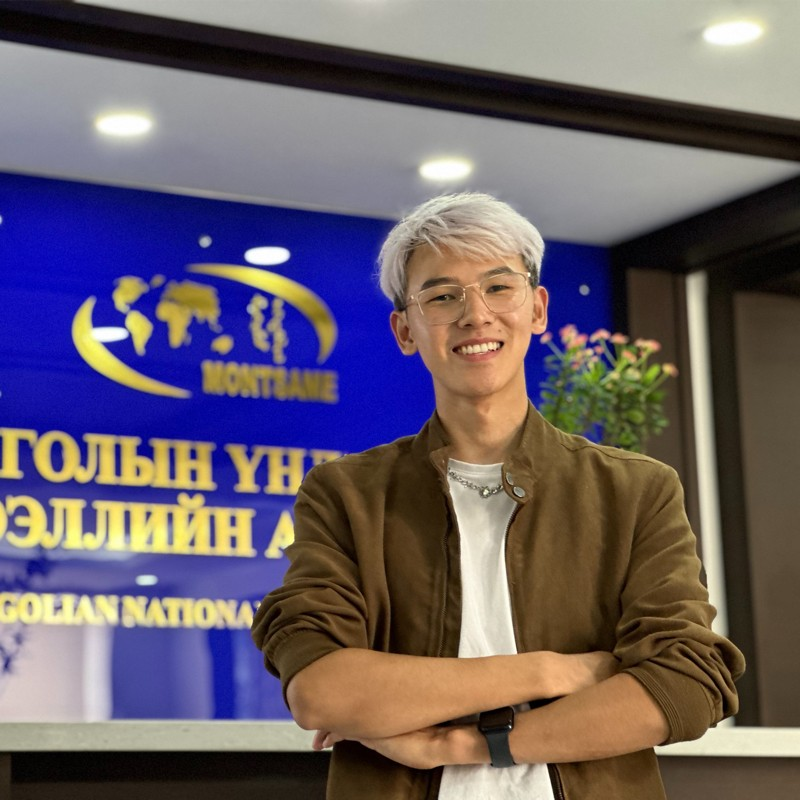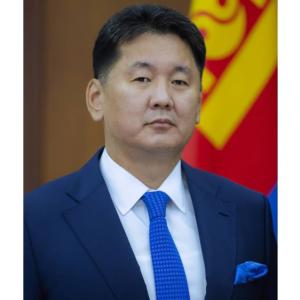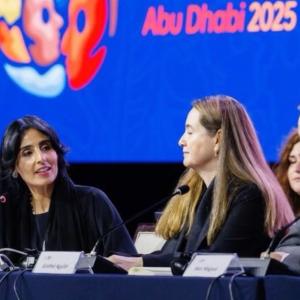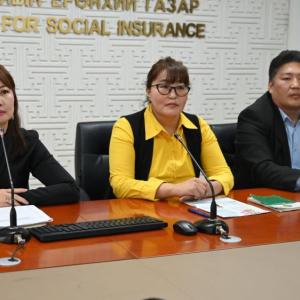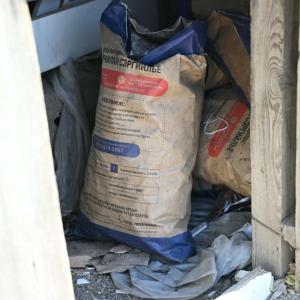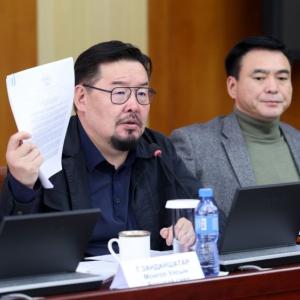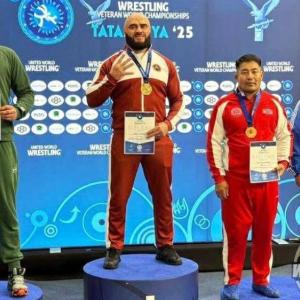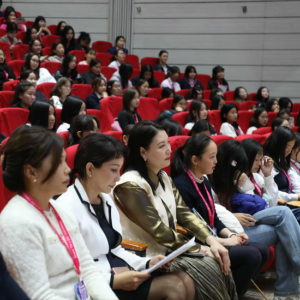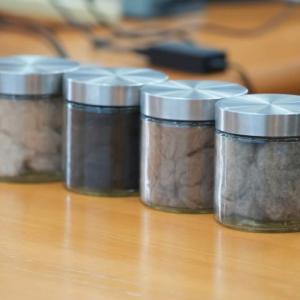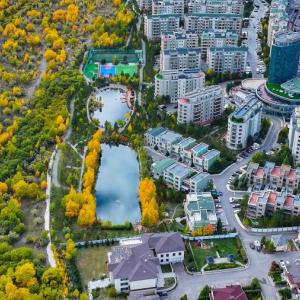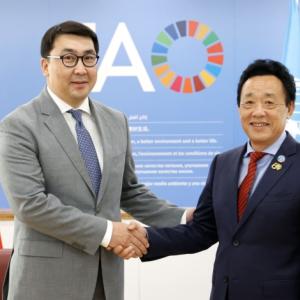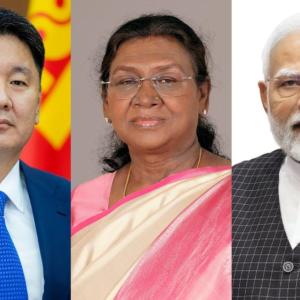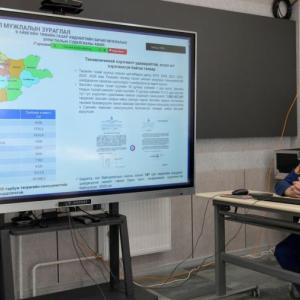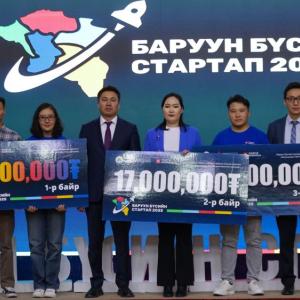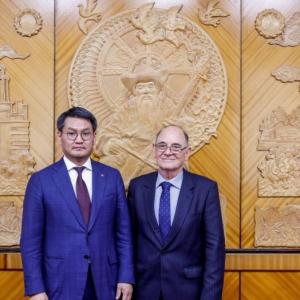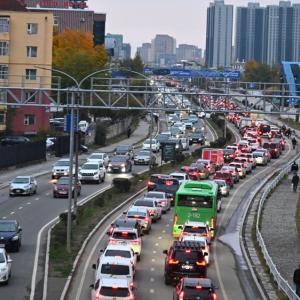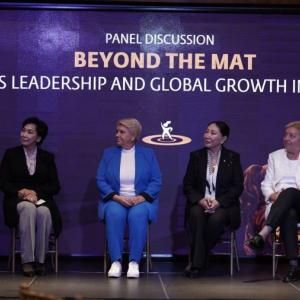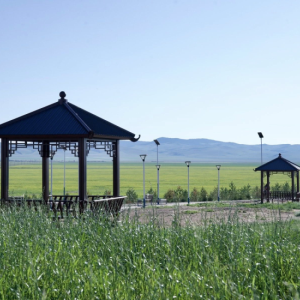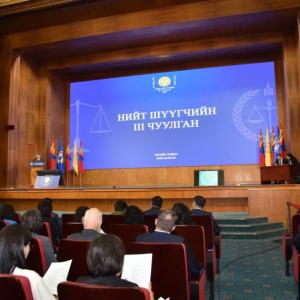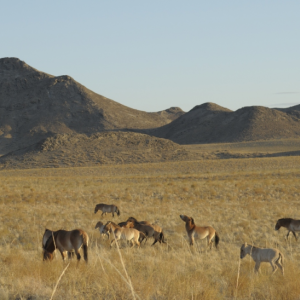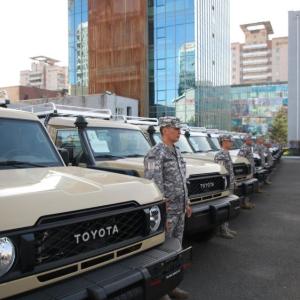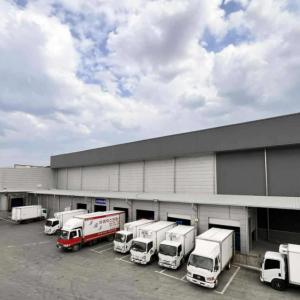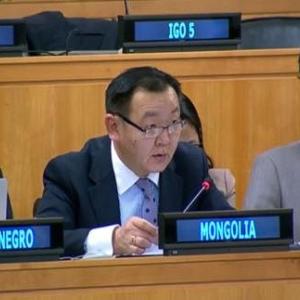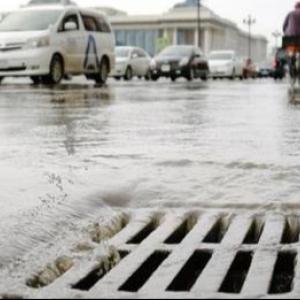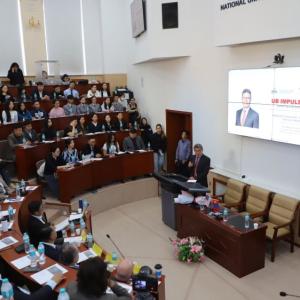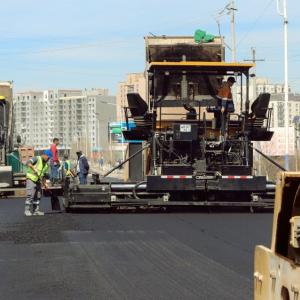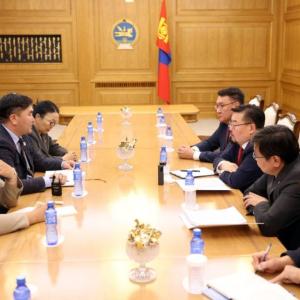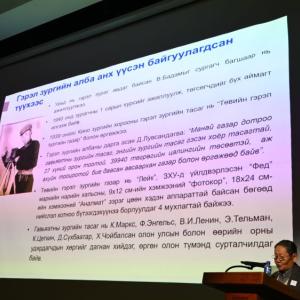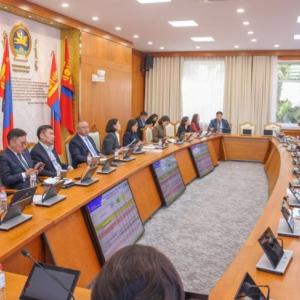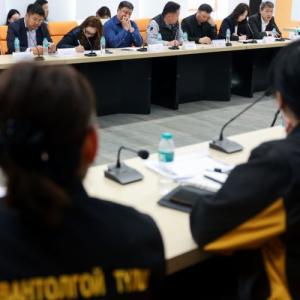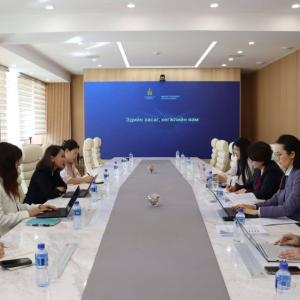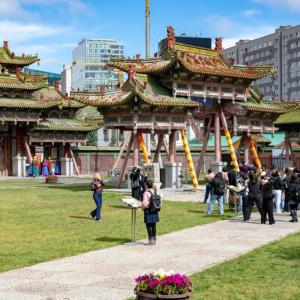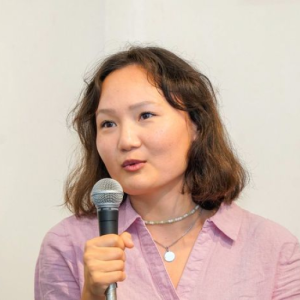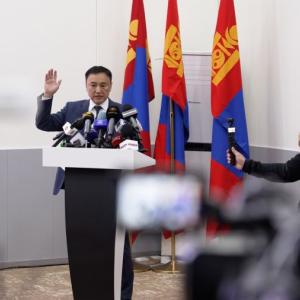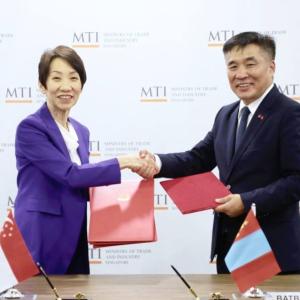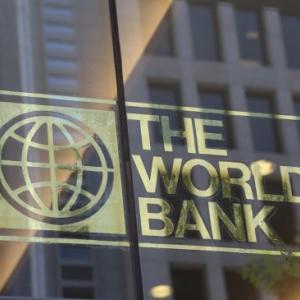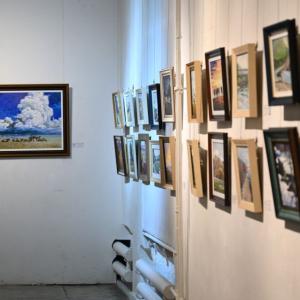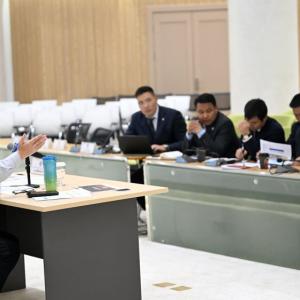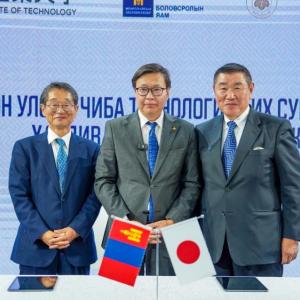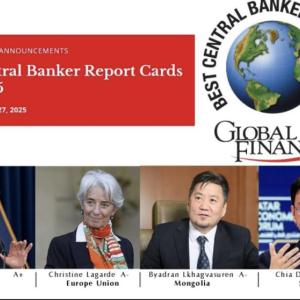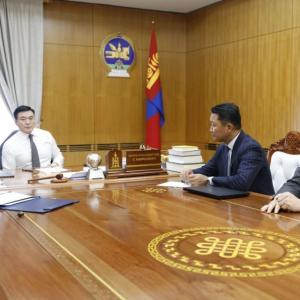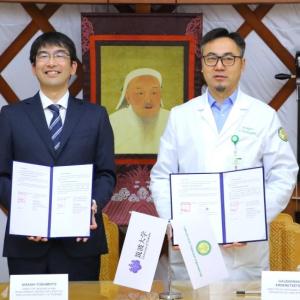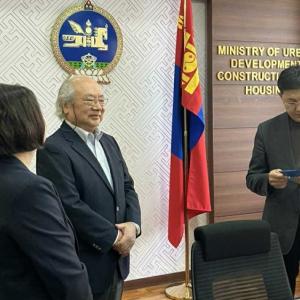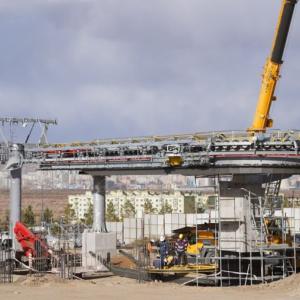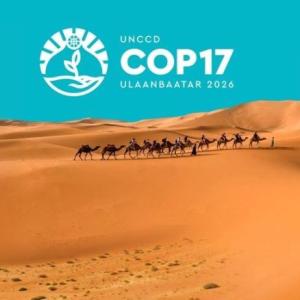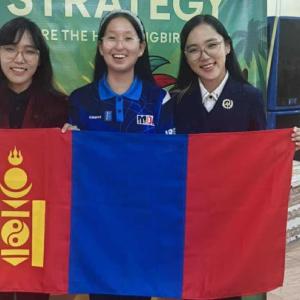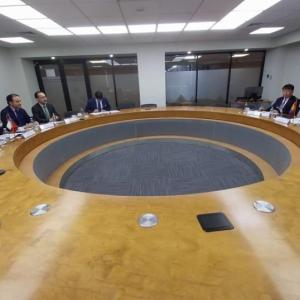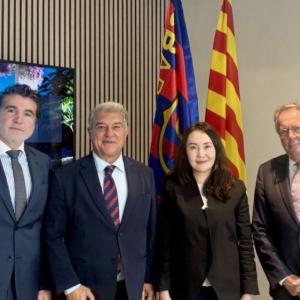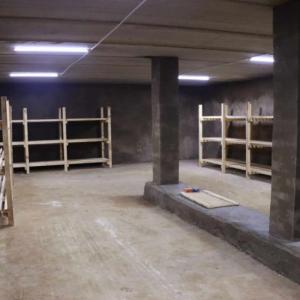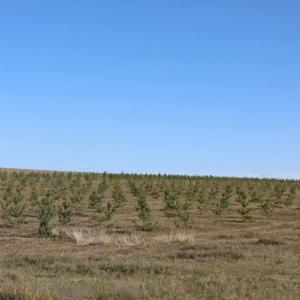More than 60 million USD to be invested by UNICEF for child well-being in Mongolia from 2023-2027
Society
Ulaanbaatar,
Jan 16 /MONTSAME/.
MONTSAME News Agency interviewed Mr. Evariste Kouassi-Komlan who was appointed
as the UNICEF Representative to Mongolia in November 2021. He has extensive
experience with children's issues in the development and complex humanitarian contexts, with a
focus on ensuring linkages between climate change and social sectors, and a
history of establishing partnerships.
Education:
Master of Science
in Utility Management from UNESCO-IHE in the Netherlands, and a Certificate of
Senior Leadership and Development from Judge Business School at the University
of Cambridge in the UK.
Good
morning, Mr. Evariste Kouassi-Komlan. You have been in Mongolia for over a year
now. What are your main wishes for the country in 2023?
-Since
I arrived a year and one month ago in Mongolia, there have been a lot of
substantial growth in many areas of the country. Mongolia has acceded to core
human rights treaties and has set up an institutional mechanism to meet the
commitments under international norms and standards.
Remarkable
progress has been made in reducing child mortality rates, stunting and
malnutrition, as well as expanding access to water and sanitation,
kindergarten, and school. The past year's air pollution strategy and investment
were also remarkable. There are still many works to do in different areas on
children’s rights toward the achievement of Sustainable development goals.
My
wishes for 2023 are more cohesion at all levels, stability in different
institutions, and more resources to address child-related issues in the
country. We all love children and wish all the children happiness and a healthy
life in 2023.
UNICEF
executive board approved the Mongolian New Country Programme, 2023-2027 in
September last year. Can you tell us what the major shifts are?
-Well,
we are incredibly happy that our New Country Programme 2023-2027 went through a
very consultative and smooth process and was approved by the executive board of
UNICEF on September 7, 2022. I want to express my profound gratitude to the
Ministry of Foreign Affairs and other ministries for their input and discussions around the programme before it went to our Executive Board.
Our
ambition is to reach every child in all settings.
Over
50 years, the cooperation between Mongolia and UNICEF has been excellent. A lot
of progress for children have been made over the decades. However, there are a
lot of unfinished business and new issues that demand our full attention. These are concerning (1) child labor, (2) obesity,
(3) quality education and online education, (4) water and sanitation, (5)
online child abuse, (6) adolescent mental health, (7) air pollution, and (8)
climate change. These are all issues that UNICEF is working on in the New
Country Programme 2023-2027.
First,
our previous country programme targeted three geographical provinces. In this
new programme, we expanded to cover nationwide, meaning
we will evaluate each
province based on strategic areas we've developed to meet the unique
requirements of each province and then engage in a Fact Check discussion.
During the Fact Check discussion, our team in UB will communicate with
provincial governors and co-design solutions.
Secondly,
there are some areas that require fundamental improvement. For instance,
children screening, one of the top three issues in the health sector, and
education. In the education sector, we will focus on digital learning, a
challenge not only for Mongolia but for the entire world. We will address
online protection as part of our focus on children's online safety in Child
protection.
In
the framework of the New Country programme, we should provide modern and
energy-efficient solutions to reduce air pollution for
the gers, and improve indoor air quality, especially in
kindergartens, schools, hospitals, homes, and office spaces. Moreover, there is
a need to provide good health and information services for people at risk.
In terms of the geographical scope, we need to expand our programme to other urban areas in the country and reach all the areas in the country based on Provincial needs.
As I said, our ambition is to move from specific geographical targeting as done in the previous years to reach every child in all settings.
One
of the shifts the country will operate is the expansion of the Child protection
programme. Can you elaborate more on this? Since Mongolia is facing an
unprecedented child protection issue online and offline?
-The
Child protection issue is one of the areas that
we would like to
put more emphasis through our new programme. We have revamped our child
protection programme and put it as one of the key pillars of the programme due
to the challenges that many children face during the pandemic.
We
have witnessed numerous cases of online bullying and harassment that have
become a major concern worldwide, not just in Mongolia. Children are at risk of
becoming victims of online bullying and harassment accidentally and exposure to
inappropriate content.
As
most countries in East Asia and the Pacific region lack sufficient legislation
and policies to protect children's safety online, some online abuse and
exploitation are not fully criminalized. Children, parents, and teachers are
not fully aware of the evolving risks posed online. Children (and their
caregivers and teachers) need to have the knowledge and digital literacy
skills, information to know what to do and where to seek help when they
experience problems online, and to avoid becoming victims of online violence
themselves.
So, it is one of the areas we need to train more people. Then, we can address the area proportionally based on the country's resources and capacities. To do that, we will cooperate with the ministries. Because it requires a cross-sectoral approach.
For solving the child protection issues in the country, every sector needs to work together such as Justice and Police, Education, Child Protection, and the Ministry of Digital communication, etc.
The
next one is offline issues or domestic violence, which is one of the issues we
are still facing. I believe the challenges we face now are how to collaborate
with numerous organizations, including the Grass-Root Organization, to improve
parenting and to engage in face-to-face discussions with families to reduce
these types of abuses. The situation that children face in domestic
settings will be our priority this coming year.
These
circumstances motivate us to expand our child protection efforts in Mongolia.
In
addition to the child protection shift, your vision is to work in all the
provinces. What capacities and resources do you have available?
-So,
we will spend over USD 60 million in the coming 5 years on our programme.
Reaching every child approach is the core of our interventions. Our strategic
interventions will focus on six main strategic interventions as described below
and will form the basis of the identification of areas in need of our
intervention.
1)
System strengthening, 2) Evidence to promote child right issues, 3) Leveraging
financial resources, 4) Building sustainable markets, 5) Empowering the
community, 6) Delivery supplies.
We
have started working with many provinces to identify the needs and where we can
jointly contribute since 2021. In this case, our interventions can be
beneficial and based on the needs of each province.
My
last trips were to Sukhbaatar and Khentii aimags where we discussed more
Integrated Earlier Child development, air pollution, and climate change issues.
With
the technical assistance available in UNICEF and the ability to work at global
standards and norms, we will be able to support most of the provinces and
leverage domestic resources, including private sector resources for better
results for the children in Mongolia.

Private
sector plays a significant role in your new strategy. Can you tell us more
about how you will work with the private sector?
-The private sector is a huge contributor to our goal globally. They contribute
a lot in terms of financial resources, innovations, and many other aspects.
1)
Innovation, expertise, and capabilities which businesses can bring through
technologies, entrepreneurship; market-based solutions, and distribution
networks; 2) Investment capacity, and managerial and operational
expertise 3) The private sector's extensive networks and operations
provide distribution channels to reach inclusive value chain actors ranging
from SMEs to retailers and consumers; 4) The private sector's vast financial
resources and expertise in market-based solutions have the potential for
achieving scale and sustainability in tackling systemic environmental
challenges; 5) Extended investment horizons based on asset lifespans; 6)
Policy influence and the capability to deliver what in-country governments
seek to achieve, such as improved service delivery, resilience to climate
change, and human health that gives businesses a strong, knowledgeable voice to
inform policy that supports transparent, inclusive sustainable development; and
7) Philanthropy.
UNICEF
will collaborate with the private sector as follows: As an initiator:
Creating new projects and initiatives that have real commercial potential for
upscaling and transformation on a global scale. That can involve technical
assistance, granting, or blended finance.
As
a catalyzer
(Broker): Fostering existing projects and initiatives (platforms) that have
demonstrated potential to scale up, out, and deep. Top up these projects to
reach the scale expected.
As
a facilitator,
supporting the conditions that can foster the creation of a forum, bring
together key parties, reach into the public sector domain, build institutional
capacity, and leverage existing local networks. Policy and regulatory support,
provision of seed capital, and capacity building would be examples of
facilitator roles.
Private
sectors contribute significantly to our core global resources, and it is time
to call for large private sector engagement to address child right issues in
Mongolia.
The
municipality of Ulaanbaatar city has officially named a street under UNICEF.
What is your plan for that street?
-It
is a huge recognition of the UNICEF work in Mongolia. Having a Street named
after UNICEF is a great honor for us. It is not only UNICEF street but also the
children’s street. So more collaboration, more intervention, and more
contribution from many partners working on child right is required.
I wish our street would be children-friendly, and safe when children are crossing the road, walking alone, and standing on the street. Moreover, it would be full of entertainment that children can enjoy.
I would
like to thank all the citizens in these areas, the district governor, and the
municipality for this honor.
What
are your wishes for all the children in 2023?
-My
hope for Mongolia in 2023 is improved cohesion at all levels, institutional
stability, and more resources to address Mongolia's most pressing issue. I
would like to say to all the children in Mongolia, we are here for you, we love
you, and we wish you a year of joy and love. As you know, we love children, we
will keep loving them, and wish them incredibly good prospects and hopes for
the new year.
2023 is the beginning of the Our New Country Programme, which will be implemented till 2027. This New Country Programme is calling upon all the citizens and private sectors in Mongolia to join this effort that we are making.
Thank you!
 Ulaanbaatar
Ulaanbaatar











